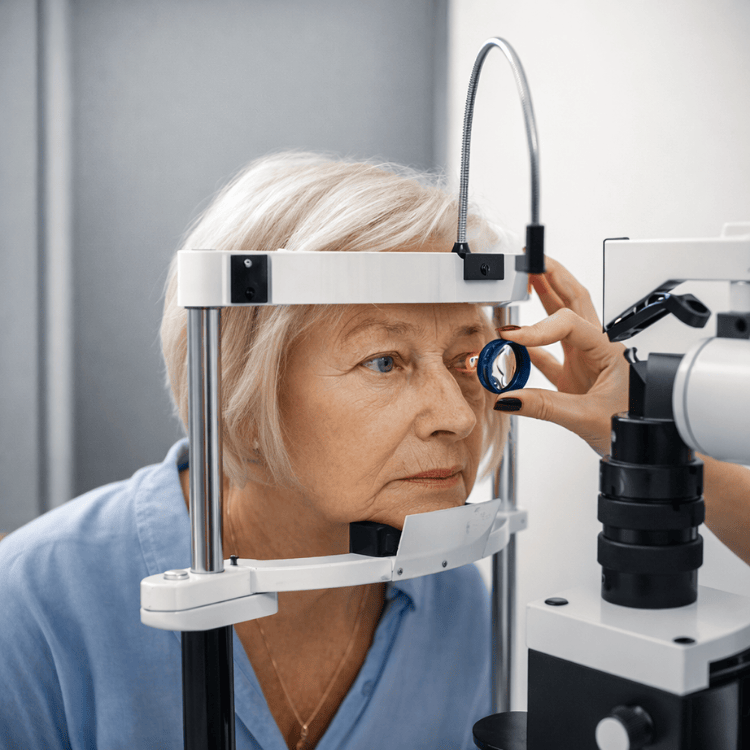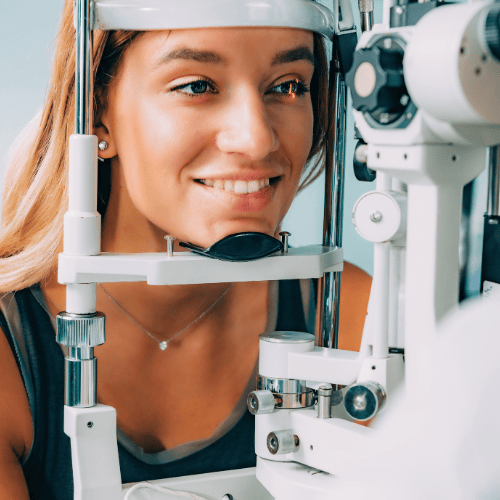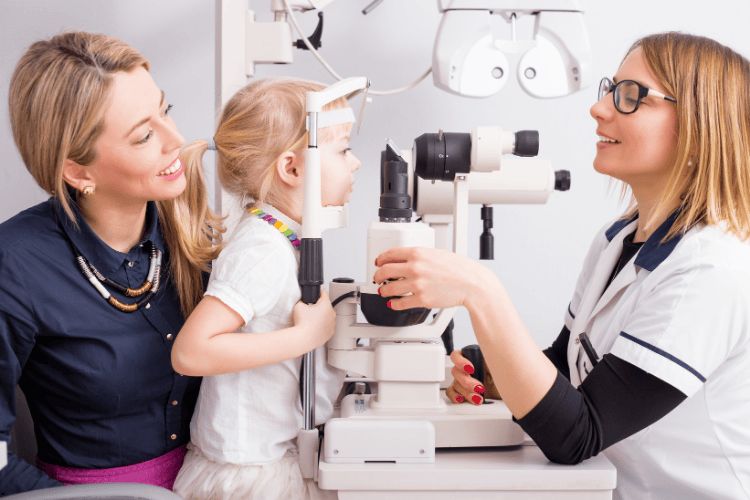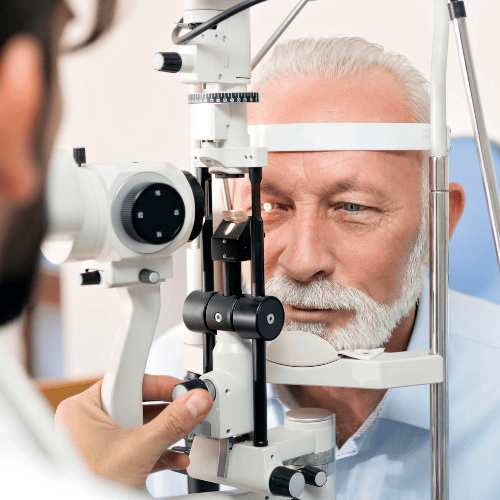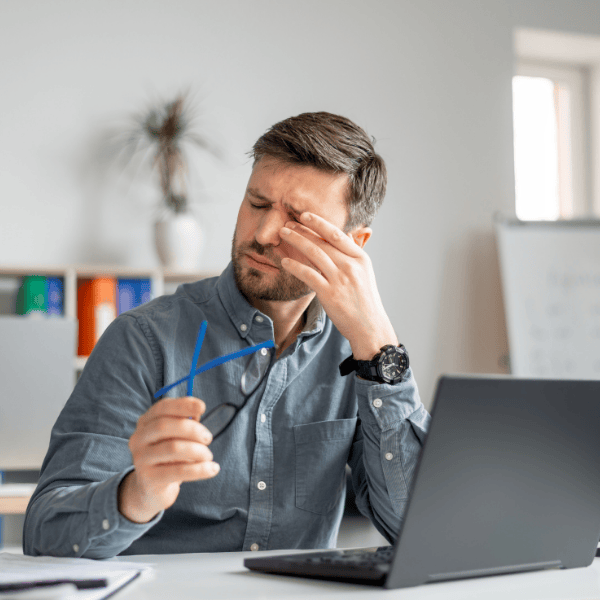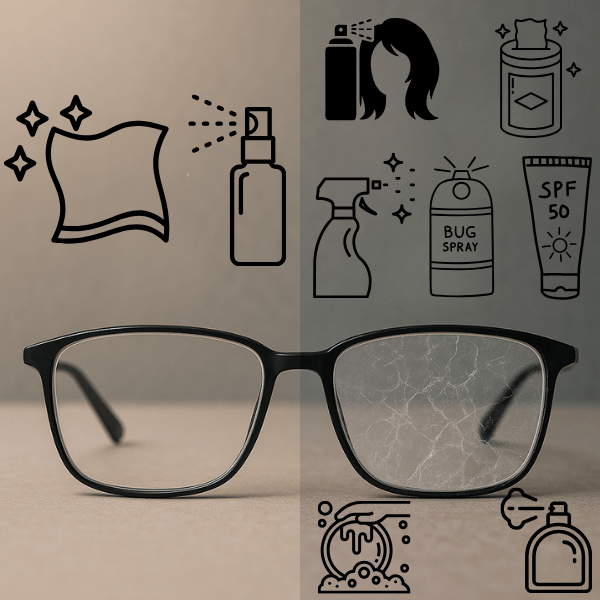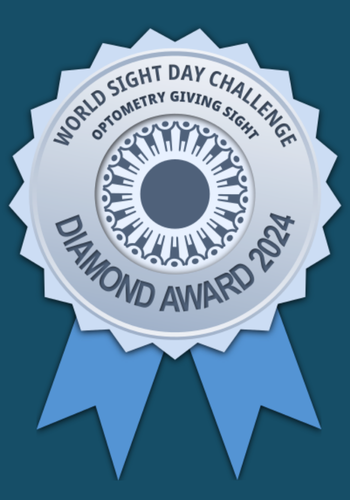BLUE LIGHT BLOCKING GLASSES: THE FACTS
Many of you may have seen the CBC Marketplace segment which aired last week about blue light-blocking glasses for electronic screen use. Hidden cameras were used at various optical chain stores where the salespeople claimed that blue light from computer screens causes eye disease like age-related macular degeneration, cataracts, and skin cancer.
Here are the facts about blue-light and our recommendations for blue-light protective glasses:
- Blue light is “near-UV” in the spectrum – this means that it is very close to the wavelength of light we know is dangerous to living tissue
- Blue light has been shown to damage cells of the retina in laboratory studies – but in very high doses in most cases not usually encountered from digital device use
- Blue light exposure does affect circadian rhythms – which means altered sleep patterns and less restful sleep cycles in many individuals
- Digital device use has skyrocketed in recent years (one study found that in children, it has tripled in 4 years https://edsource.org/2017/time-children-spend-on-mobile-devices-has-tripled-in-four-years/589180 )
So what do we recommend for our patients?
At MVO our advice about blue-light protective lenses has not changed. Here it is:
- Blue light exposure over long periods of time may contribute to increased risk for certain types of vision-threatening eye diseases, but as we’ve always said the evidence for this is not yet clear. It is not correct to say that blue light exposure from digital devices “causes sight-threatening eye disease”.
- Digital devices should be avoided for up to four hours before bedtime, due to the sleep-altering effects of blue light exposure. Heavy computer users are usually on some kind of device (including cell phones, laptops and tablets) for most waking hours. These people should consider the use of blue-blocking glasses if they are unable to stop using their devices several hours before bedtime
- Heavy computer users should ensure that their glasses are specifically prescribed for computer use, as even a small inefficiency could lead to increased fatigue and discomfort. We recommend the use of an anti-glare coating optimized for the shorter wavelength (blue light) emitted from digital devices if special “computer glasses” are prescribed.
- Children are more vulnerable to the effects of shorter wavelength light exposure, including UV and blue light, due to the lenses of their eyes being clearer than adults. These shorter wavelength light rays have an increased chance of penetrating to the back of the eye in young patients. We recommend UV protection (sunglasses or photochromic lenses) at all times during daylight exposure for young people, as well as blue-light blocking glasses if they are on digital devices for prolonged periods of time.
At MVO, protection of your vision is our #1 priority and we remain committed to bringing you the best recommendation for your specific situation, based on the latest evidence-based data. Please feel free to ask one of our doctors at your next visi t if you have any further questions about the benefits of blue-light blocking glasses.




